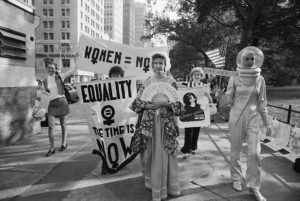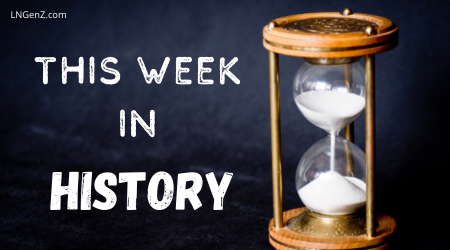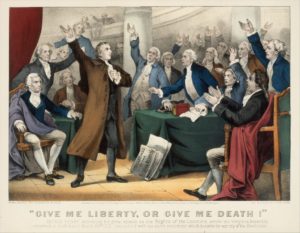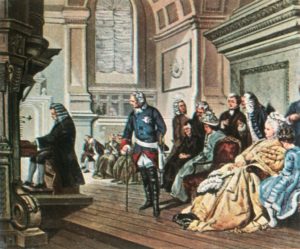-
January
-
February
- This Week in History: February 6-12 – Lesson
- This Week in History: February 6-12 – Quiz
- This Week in History: February 13-19 – Lesson
- This Week in History: February 13-19 – Quiz
- This Week in History: February 20-26 – Lesson
- This Week in History: February 20-26 – Quiz
- This Week in History: February 27-March 5 – Lesson
- This Week in History: February 27-March 5 – Quiz
-
March
- This Week in History: March 6-12 – Lesson
- This Week in History: March 6-12 – Quiz
- This Week in History: March 13-19 – Lesson
- This Week in History: March 13-19 – Quiz
- This Week in History: March 20-26 – Lesson
- This Week in History: March 20-26 – Quiz
- This Week in History: March 27-April 2 – Lesson
- This Week in History: March 27-April 2 – Quiz
-
April
- This Week in History April 3-9 – Lesson
- This Week in History April 3-9 – Quiz
- This Week in History: April 10-16 – Lesson
- This Week in History: April 10-16 – Quiz
- This Week in History: April 17-23 – Lesson
- This Week in History: April 17-23 – Quiz
- This Week in History: April 24-30 – Lesson
- This Week in History: April 24-30 – Quiz
-
May
- This Week in History: May 1 – 7 – Lesson
- This Week in History: May 1 – 7 – Quiz
- This Week in History: May 8 – 14 – Lesson
- This Week in History: May 8 – 14 – Quiz
- This Week in History: May 15 – 21 – Lesson
- This Week in History: May 15 – 21 – Quiz
- This Week in History: May 22-28 – Lesson
- This Week in History: May 22-28 – Quiz
- This Week in History: May 29-June 4 – Lesson
- This Week in History: May 29-June 4 – Quiz
-
June
- This Week in History: June 5 – 11 – Lesson
- This Week in History: June 5 – 11 – Quiz
- This Week in History: June 12-18 – Lesson
- This Week in History: June 12-18 – Quiz
- This Week in History: June 19-25 – Lesson
- This Week in History: June 19-25 – Quiz
- This Week in History: June 26 – July 2 – Lesson
- This Week in History: June 26 – July 2 – Quiz
-
July
- This Week in History: July 3 – 9 – Lesson
- This Week in History: July 3 – 9 – Quiz
- This Week in History: July 10 – 16 – Lesson
- This Week in History: July 10 – 16 – Quiz
- This Week in History July 17 – 23 – Lesson
- This Week in History July 17 – 23 – Quiz
- This Week in History – July 24-30 – Lesson
- This Week in History – July 24-30 – Quiz
- This Week in History: July 31 – August 6 – Lesson
- This Week in History: July 31 – August 6 – Quiz
-
August
- This Week in History: August 7-13 – Lesson
- This Week in History: August 7-13 – Quiz
- This Week in History: August 14 – 20 – Lesson
- This Week in History: August 14 – 20 – Quiz
- This Week in History: August 21 – 27 – Lesson
- This Week in History: August 21 – 27 – Quiz
- This Week in History: August 28 – September 3 – Lesson
- This Week in History: August 28 – September 3 – Quiz
-
September
- This Week in History: September 4 – 10 – Lesson
- This Week in History: September 4 – 10 – Quiz
- This Week in History: September 11 -17 – Lesson
- This Week in History: September 11 -17 – Quiz
- This Week in History: September 18 – 24 – Lesson
- This Week in History: September 18 – 24 – Quiz
- This Week in History: September 25 – October 1 – Lesson
- This Week in History: September 25 – October 1 – Quiz
-
October
- This Week in History: October 2-8 – Lesson
- This Week in History: October 2-8 – Quiz
- This Week in History: October 9 –15 – Lesson
- This Week in History: October 9 –15 – Quiz
- This Week in History: October 16–22 – Lesson
- This Week in History: October 16–22 – Quiz
- This Week in History: October 23–29 – Lesson
- This Week in History: October 23 –29 – Quiz
- This Week in History: October 30 – November 5 – Lesson
- This Week in History: October 30 – November 5 – Quiz
-
November
- This Week in History: November 6 – 12 – Lesson
- This Week in History: November 6 – 12 – Quiz
- This Week in History: November 13 – 19 – Lesson
- This Week in History: November 13 – 19 – Quiz
- This Week in History: November 20 – 26 – Lesson
- This Week in History: November 20 – 26 – Quiz
- This Week in History: November 27- December 3 – Lesson
- This Week in History: November 27- December 3 – Quiz
-
December
This Week in History: March 20-26 – Lesson

(Getty Images)
Equal Rights Amendment passed and Patrick Henry’s Speech that sparked the American Revolution.
“History provides no precise guidelines.” ~ Douglas Hurd
March 22, 1972: Equal Rights Amendment Passed by Senate
It took a long time for the Equal Rights Amendment (ERA) to make it through Congress – and the proposed amendment was never actually added to the Constitution. This piece of legislation aimed to end legal discrimination based on a person’s gender. The issue was first brought up in 1923 by the National Woman’s political party, but it took 40 more years to be taken seriously.
The feminist movement in the late 1960s had a large part in getting the amendment to Congress. Powerful women such as New York Representative Bella Abzug, also known as “Battling Bella,” and well-known feminists including Gloria Steinem pushed the legislation. It was passed in the House of Representatives in October 1971. On March 22, 1972, it was approved by the Senate and sent to the states to ratify.
The amendment states:
“Equality of rights under the law shall not be denied or abridged by the United States or by any State on account of sex.”

To become law, 38 states needed to ratify the amendment. Twenty-two states quickly approved the policy, but that wasn’t enough to ratify it. Congress had put a deadline on the ratification, so it had to be completed by 1979 – but in that year only 35 states had agreed. The deadline was extended to 1982, but the bill was still three states short. It wasn’t until decades later that three more states ratified the amendment: Nevada in 2017, Illinois in 2018 and Virginia in 2020.
The states that hesitated had concerns such as women being drafted into the military and forced to face combat duty, as well as other legal worries.
March 23, 1775: Patrick Henry’s Speech Sparked the American Revolution
At this time in history, America was made up of colonies overseen by England. The colonists grew tired of the Motherland’s interference, especially when it came to “taxation without representation.”

-Patrick Henry delivering his great speech on the Rights of the Colonies. Artist Nathaniel Currier, James Merritt Ives. (Photo by Heritage Art/Heritage Images via Getty Images)
When England imposed the Stamp Act, the colonists became very upset. The law placed a tax on every piece of paper they used. Patrick Henry, one of the Founding Fathers, wrote a series of resolutions that were introduced to the Virginia legislature in a speech. He said Americans should be the only ones able to tax themselves and that Virginians should only have to pay taxes approved by the state’s legislature. His speech became so popular, other states started using the ideas and spreading the word.
The Second Virginia Convention met in March 1775. Henry gave his most famous speech:
“Gentlemen may cry, ‘Peace, Peace,’ but there is no peace. The war is actually begun! The next gale that sweeps from the north will bring to our ears the clash of resounding arms! Our brethren are already in the field! Why stand we here idle? … Is life so dear, or peace so sweet, as to be purchased at the price of chains and slavery? Forbid it, Almighty God! I know not what course others may take; but as for me, give me liberty, or give me death!”
Attendees of the speech included future presidents George Washington and Thomas Jefferson. Henry’s impassioned speech sparked the American Revolution.
Other Notable Mentions

Teams of firefighters cleaning the Alaskan coast following the Exxon Valdez oil spill. (Photo by jean-Louis Atlan/Sygma via Getty Images)
March 24, 1934: President Franklin D. Roosevelt granted independence to the Philippine Islands in the South Pacific. The area had been under American control for 50 years.
March 24, 1989: The oil tanker Exxon Valdez ran aground in Prince William Sound near Alaska. This was one of the largest spills in American history, with 11 million gallons of oil leaking out and stretching 45 miles.
March 25, 1807: After a long campaign by Quakers (and others), the British Parliament abolished the slave trade.
March 25, 1911: A huge fire inside a New York City factory killed 123 young women and 23 men. The women were low-paid seamstresses and the tragedy incited national interest regarding the rights of immigrant workers in the garment industry who generally worked six or seven days a week for about $5 a week.
March 26, 1979: With a treaty led by President Jimmy Carter, the Camp David Accord ended 30 years of warfare between Egypt and Israel.

Johann Sebastian Bach plays the organ for King Frederick the Great of Prussia. Artist Unknown. (Photo by The Print Collector via Getty Images)
March 26, 1992: Russian Cosmonaut Sergei Krikalev returned home after spending 313 days aboard the Mir Space Station, only the Soviet Union had collapsed while he’d been away and was now known as the Commonwealth of Independent States.
Famous Birthdays
Johann Sebastian Bach (March 31, 1685) was born in Eisenach, Germany. An organist and composer, some of his most well-known works include The Brandenburg Concertos, The Well-Tempered Clavier for Keyboard, and Mass in B Minor.
Harry Houdini (March 24, 1874) was born in Budapest, Hungary, and immigrated to the US. The magician became world-famous for his ability to escape from chains, straight jackets, locked boxes, and more.
Tennessee Williams (March 26, 1911) was born in Columbus, Mississippi. He was a playwright with famous works such The Glass Menagerie, A Streetcar Named Desire, and Cat on a Hot Tin Roof.